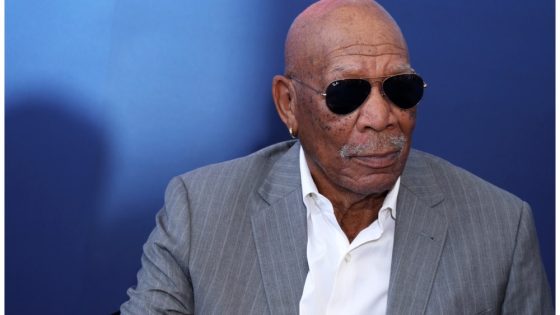Morgan Freeman isn’t a fan of Black History Month.
“I detest it. The mere idea of it. You are going to give me the shortest month in a year? And you are going to celebrate ‘my’ history?! This whole idea makes my teeth itch. It’s not right,” he tells Variety.
“My history is American history. It’s the one thing in this world I am interested in, beyond making money, having a good time and getting enough sleep.”
Having exec produced Civil War series “The Gray House” alongside Lori McCreary through Revelations Entertainment, the past is very much on Freeman’s mind.
“If you don’t know your past, if you don’t remember it, you are bound to repeat it,” he says. During election year, this statement seems particularly poignant.
“Do you know this song? ‘To everything, there is a season.’ It really, really works in showbusiness. You are trying to sell something 15 years ago and nobody even looks at you. Then they go: ‘Didn’t you have a project, some time ago? Do you still have it?’ Life is like that, in this industry. You have got something you think is important, but trying to convince others is the difficult part.”
Apart from Rod Lake, Howard Kaplan and Leslie Greif, “The Gray House” is also exec produced by Kevin Costner, who recently brought “Horizon” to Cannes. Does it mean it’s a good time for other “American sagas”?
“It must be, because here we are,” Freeman says.
The series opened Monte-Carlo Television Festival on Friday, while Freeman himself picked up the Crystal Nymph award. Paramount Global Content Distribution is handling distribution.
Inspired by true events, the show tells the story of four Southern women – a socialite from Virginia Elizabeth Van Lew (Daisy Head), her mother (Mary-Louise Parker), a formerly enslaved Black woman Mary Jane Richards (Amethyst Davis) and a prostitute (Hannah James), who start to spy for the Union. And that’s just the beginning.
“It’s so wide-ranging. There are so many people in the series, because we are acknowledging they were there. If you can do that, if you are given space to do that, bravo. It didn’t just happen to one group of people,” notes Freeman.
“[With a story like this] you are encouraged to dig. And if you are going to dig, you are going to come up with something.”
McCreary agrees: “Morgan’s motto is: ‘Every project has its time and its team.’ I think the universe conspired to have us have this time for this project. It’s very much on our mind now, to be mindful of what we have been through. And make sure the future is brighter. We need to learn – as a planet. As communities around the world.”
Despite some lighter moments in the story, they couldn’t shy away from violence, she says.
“We are not white-washing, we are not sugar-coating the fact that African Americans were enslaved. They weren’t treated as a full person. When you come out of watching these eight hours, maybe you will look at someone who looks like Morgan or me differently. You will understand their experience, their ancestors’ experience and you will be able to relate.”
The show’s female characters are certainly not just “passing the biscuits,” she observes.
“When I watch something and it’s an authentic portrayal of women, I am engaged. And many times, I feel like those I can relate to are in the background. The more people like Morgan and I can tell our own stories – because nobody else will – the more we’ll understand that women are everything. We are housewives, mothers and scientists. And spies!”
Researching the story, she was thrilled to find out more about Mary Jane Richards.
“She had a photographic memory. She volunteered herself to be gifted to the ‘Gray House’ [the White House of the Confederacy] and pretended to be a slave. She was serving tea and looking at all the maps. I didn’t know there was someone who risked her entire life like that. There should be chapters in history books dedicated to her. I don’t know why she was overlooked.”
Freeman adds: “I will tell you why: She was a woman.”
Source Agencies



